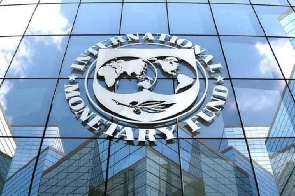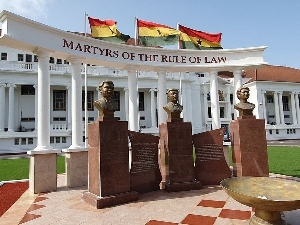Opinions of Monday, 5 February 2024
Columnist: Michael Agbesi Kelly
The detrimental impact of IMF conditionalities on the people of Ghana
The International Monetary Fund (IMF) has long been criticized for its imposition of conditionalities on countries seeking financial assistance. These conditionalities often come with severe consequences for the citizens of these nations. This article sheds light on how IMF conditionalities have been detrimental to the people of Ghana, exacerbating poverty, and inequality, and stifling economic growth.
Austerity measures: One of the key aspects of IMF conditionalities is the implementation of austerity measures. These measures typically involve reducing government spending, cutting subsidies, and increasing taxes. In Ghana, this has resulted in reduced funding for crucial social sectors such as healthcare, education, and infrastructure development. As a result, Ghanaians have experienced a decline in the quality of public services, limited access to healthcare, and inadequate educational opportunities.
Economic diversification: IMF conditionalities often prioritize economic liberalization and market-oriented reforms. While these policies may have their merits, they have also hindered the diversification of Ghana’s economy. The emphasis on export-oriented industries has left the country vulnerable to external shocks, such as fluctuations in global commodity prices. Consequently, Ghana’s over-reliance on a few key sectors has impeded sustainable and inclusive economic growth, perpetuating poverty and unemployment.
Privatization and foreign investment: Under IMF conditionalities, privatization of state-owned enterprises and attracting foreign direct investment (FDI) are often promoted as solutions to economic challenges. However, the process of privatization in Ghana has been marred by corruption, lack of transparency, and the transfer of public assets to private hands without adequate regulation. Moreover, the influx of foreign investment has not necessarily translated into meaningful job creation or technology transfer, further exacerbating inequality and dependence on external actors.
Social safety nets: IMF conditionalities often neglect the importance of social safety nets, leaving vulnerable populations without adequate support. In Ghana, the implementation of austerity measures has disproportionately affected the poor and marginalized communities. Reductions in subsidies for essential commodities, such as fuel and food, have led to increased prices, making it harder for low-income households to make ends meet. The lack of robust social safety nets has left many Ghanaians without a safety net to fall back on during times of economic hardship.
IMF conditionalities have had a detrimental impact on the people of Ghana, perpetuating poverty, and inequality, and stifling economic growth. The imposition of austerity measures, limited economic diversification, flawed privatization processes, and inadequate social safety nets have all contributed to the suffering of Ghanaians.
Policymakers and international institutions must reassess these conditionalities, taking into account the long-term welfare of the people and promoting sustainable, inclusive, and equitable development. Only then can Ghana and other nations break free from the cycle of IMF conditionalities and build a brighter future for their citizens.












